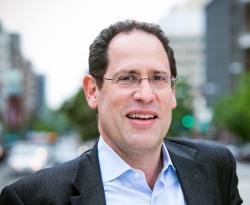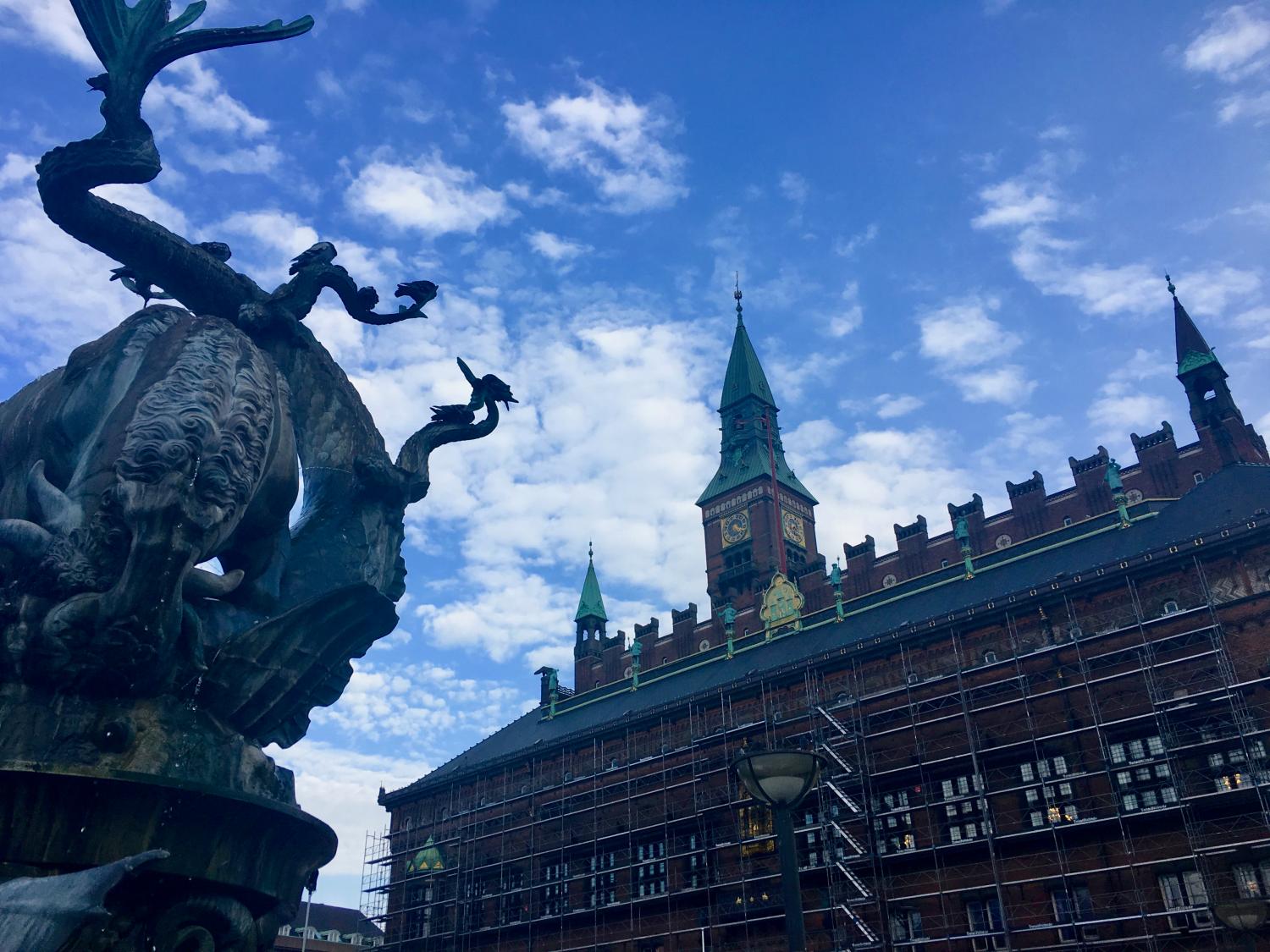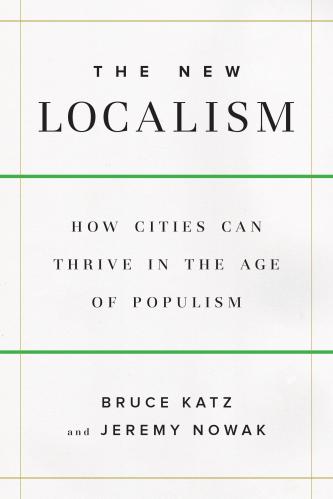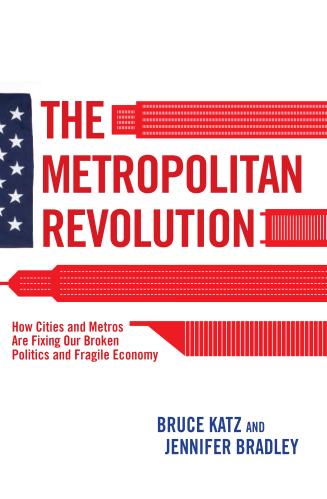These are trying times for the world—and acutely challenging times for cities. Whether grappling with the challenges of integrating refugees or adapting to new environmental realities brought on by climate change, mayors are on the front lines, dealing with disruptions brought by technology, economic transformation, and demographic shift.
In the United States, socioeconomic and political pressures are disrupting federalist governance arrangements and destabilizing sitting mayors, forcing them to take on new responsibilities with fewer resources. A wave of state preemption laws, fueled by advocacy campaigns from conservative groups like the American Legislative Exchange Council (ALEC) and Republican-controlled state houses, are rolling back city-led efforts to expand municipal broadband, raise the minimum wage, and regulate home and ride sharing. Proposed reforms to city charters have sought to expand or restrict mayoral control over city budgets, powers over police departments, and more.
In Europe, rising populist sentiment is having similar effects on political discourse, creating tensions between social and economic policy preferences at the local and national level. In the United Kingdom, a devolution movement is granting sweeping new powers to directly elected mayors in cities and metropolitan regions that never had consolidated local leadership before. Mayors are flexing their muscle on the global stage as well, generating coordinated action on issues like climate change where many national governments are falling behind, and pushing for more formal recognition in an international system that remains organized around the nation state.
This paper explores the state of mayoral powers in a shifting political economy and governance landscape; identifies ongoing challenges for research, policy, and practice; and recommend ways to address them. The study began as an investigation of city charter challenges, but expanded to address the heightened urgency of the current political moment and the looming federalist crisis in the United States. The analysis primarily centers on the United States with a U.S. audience in mind, but illustrative examples from countries such as the United Kingdom and Chile help provide important international context for emerging city leadership dynamics around the world.
A clearer articulation of the underlying governance structures in cities and the ways they are evolving will help mayors and other city leaders stay grounded and govern more effectively in a rapidly changing world. The lessons from mayors solving problems and making progress in spite of constraints on their formal powers and available resources are even more necessary today, as federal resources and leadership on critical urban issues are on a steep decline and the gulf between urban policy preferences and state and federal priorities widens. Though cities and governance contexts vary tremendously around the world, some generalizable insights can guide and inspire efforts to strengthen mayoral leadership in cities around the world.
KEY FINDINGS:
- The need to lead beyond the limits of formal powers is a defining condition of mayoral reality. Though there is tremendous variation in urban governance arrangements, with few exceptions, formal mayoral powers are shaped and limited by fragmented governance environments. Mayors are only one piece of a diverse and complex urban governance landscape. Yet mayors must (and do) deliver results despite fragmentation of power and authority within their own cities and across other levels of government.
- Key functional capacities help mayors lead, innovate, and deliver results in their cities in spite of fragmented governance environments and limited formal powers. As demands on cities increase, mayors’ jobs become increasingly technically complex, multidisciplinary, and network-oriented. Effective mayors govern by network, exercising soft powers of persuasion and executing strategies to improve their cities that rely on a range of public, private, and civic resources. A strong orientation to building, maintaining, and engaging with networks, professionalization of key roles and responsibilities, and collaboration with specialized intermediaries can all help mayors lead beyond the limits of their formal powers
- In fragmented governance environments, any proposed expansion or reduction in mayoral powers should focus on improving accountability and transparency in decision making. Efforts to improve the quality of city governance can focus on function or form. There is no one “right” way to design the role of mayor; mayors can be effective in many different forms of government. In fragmented governance environments, clear executive structures and transparent lines of authority and decision making are essential to promote transparency and accountability.
- Urban governance arrangements are under pressure and in flux. City leaders must adapt to and shape this change. The powers that cities and their mayors wield relative to other levels of government and other forces in a globally connected market and society are changing quickly. In the United States, the current federalist arrangement is being tested in real time as progressive urban needs and preferences grow increasingly out of sync with more conservative state and federal priorities. Devolution, regional consolidation, and pressure to include city representation in the international and global system are three multilevel governance changes to watch on the global stage. Mayors are on the front lines of them all.
In spite of constraints on their formal powers, mayors everywhere have developed important capacities to overcome them. In the last decade, there have been several promising efforts to strengthen the capacities of mayors and their staff and build leadership networks that allow them to share ideas and innovations. Whether focused on core capacities or pressing issues of the day, efforts to help mayors exercise their powers more effectively—by activating their networks; using data to increase accountability, effectiveness, and responsiveness; or adapting to whatever change is around the corner—can be force multipliers.
Formal governance changes may not be necessary for mayors to rise to the complex task of governing cities, but in many cases change is coming for better or worse. It is a mayor’s job to navigate the changing preferences of citizens and residents and to negotiate and network across other levels of government and sectors to get things done. Advocating to overcome fragmentation or to demand more resources from states and central governments are reasonable and necessary functions of mayors. However, most mayors have few resources to dedicate to this task and the advocacy networks that exist to support these functions may need to evolve to keep up with new demands.
Cities are networks, and mayors are network leaders. Their ultimate success rests on the investments and actions of a number of different stakeholders—and on their ability to leverage them. Cutting across all of these recommendations is a call for greater focus and attention to these networks and the ways that cities and mayors build, activate, and engage with them. Though the primary audience for these recommendations are the mayors themselves, they are also relevant to other civic leaders, the heads of state and central governments, and philanthropies and donor organizations.
RECOMMENDATIONS:
1. Invest in professionalization and capacity building for mayors and key staff, focusing on the essential skills of building, maintaining, and leveraging networks. Mayors everywhere need to understand the fundamentals of good government and governance, and they need to understand how to engage with other levels of government and to advocate for city-level interests. Certain capacities are becoming even more essential: building and activating networks; using data and information technologies more effectively to plan, manage, and evaluate programs and services; and developing creative mechanisms to leverage public assets for greater value. Beyond these general capacities, mayors could benefit from domain-specific expertise in areas such as climate adaptation and mitigation, police reform, or immigration. In a time of increasing need and complexity, mayors and their teams need support and expertise.
2. Identify the specialized intermediaries and instruments that support successful cities and mayors. Then document, strengthen, and spread them. Mayors rely on relationships across other sectors of government, civic institutions, and the private sector to get most things done. Skilled and specialized intermediaries can help deliver on complex projects by coordinating, aligning, and activating networks of stakeholders, both for short-term projects and long-range planning. In most places, cities rely on a range of financial instruments and organizational vehicles—such as publicly owned, privately managed corporations; public authorities; and philanthropic investment funds—to help resource city projects. Their design matters: How public value is created and the way benefits are distributed vary widely from project to project and place to place. Mayors should know their options, understand the trade-offs, and be able to set the terms of city engagement.
3. Establish national data sources that track local government changes over time and support efforts to track the quality of city governance. There are too few sources of consistent, comprehensive, and credible data on local government and governance to enable the quality and quantity of research that is needed on this important topic. These could be housed in census or statistical bureaus at the federal level or within nongovernmental organizations. Regular surveys of mayors (such as the Menino Survey) and of city residents’ attitudes toward their mayors are important data sources as well. These should include specific questions on the quality of government functioning, network capacity, and partnerships with intermediaries as well as public perceptions, attitudes, and overall trust in government.
4. Increase public awareness about the role of mayors and city leadership, in particular the ways they are changing. Even many experts who work with cities lack a detailed understanding of the fundamentals of mayoral powers. Public information campaigns about how local governments work and the role mayors play in leading them would help voters make informed choices when local government changes are proposed. Most importantly, in this time of great potential for governance shifts, cities in the United States and around the world need to be learning from examples of institutional adaptation and change.
With few exceptions, the pace of institutional and bureaucratic adaptation generally lags behind the accelerating changes in the world. Efforts by mayors to adapt and lead within the span of their existing formal powers by developing and strengthening their functional capacities are useful and essential; many promising examples exist that could be amplified, replicated, and scaled. There is a great need to identify potential governance reforms and to find ways to accelerate them.
The time is ripe for mayors to lead beyond the limits of their traditional roles. Such expanded mayoral leadership could have far-reaching effects, not only for cities and their residents, but for a world that needs them to succeed.











